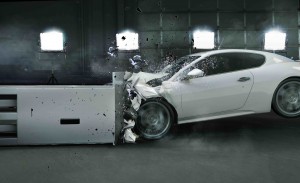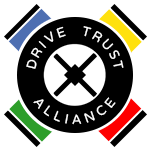Lights, Camera, Legal Action?
 by Simon Tidnam
by Simon Tidnam
Imagine you’re driving through an intersection when another car slams into you. You’re stunned to hear the other driver claim they had right of way. It’s not going to be easy to prove who was at fault. Now imagine you have a video recording that shows exactly what happened. Wouldn’t that be a huge relief? That’s why you need a dash cam—or so the sales pitch claims. It sounds good, but if you’re looking for peace of mind, do not install a dash cam. Using one could put you in a tricky legal situation. Even worse, the dash cams available today have a fundamental security flaw that could be easily be exploited by anyone who gains access to your vehicle.
Dash cams have been growing in popularity. They’re affordable, quick to install, and easy to use. The more expensive models will record what’s happening both in front of and behind the vehicle. Popular dual lens models are available for under $100 and capture video in the direction of travel and inside the passenger cabin. Most dash cams start filming automatically, either when you start the ignition or when they detect that your vehicle is in motion. This auto-record feature almost certainly guarantees that, in the unfortunate event of a traffic accident, you will have a valuable recording that shows precisely what happened. So what have you got to lose?
Installing a dash cam is subject to some basic legal requirements. There are no federal laws governing dash cams, and the state laws are mostly about imposing common sense. You need to position it correctly on the windshield, so that it does not obstruct the driver’s view of the road. You don’t want it to be in the way if the airbags get deployed.
Things get rather more complicated the moment you start filming. Now you’re dealing with both federal and state law. Federal law says you are allowed to record a phone call and other types of electronic communication providing at least one party knows that the exchange is being taped. Typically, state law expands on the federal law. Let’s take California as an example. California is one of twelve states that requires the consent of all parties to a conversation being recorded. In theory, use your dash cam in the wrong circumstances and you could end up being charged with illegal wiretapping. In addition,<a class="markup–anchor markup–p-anchor" href="https://leginfo recommended you read.legislature.ca.gov/faces/codes_displaySection.xhtml?lawCode=VEH§ionNum=26708.” target=”_blank” rel=”nofollow”>California Vehicle Code 26708 specifically allows the use of dash cams as “video event recorders.” However, California requires a notice posted in a visible location inside the vehicle which states that a passenger’s conversation may be recorded. In addition, California limits the length of a recording, stating that “video event recorders shall store no more than 30 seconds before and after a triggering event.”
Thinking of sharing a video filmed with your dash cam? Proceed with caution. Make certain you review the entire contents of your video before posting it on social media. Does it contain audible conversations? Did anyone you filmed have a reasonable expectation of privacy? Was anyone unaware that you were recording them? If the answer to any of these questions is yes, you should probably avoid hitting that share button, no matter how tempting it may seem. Remember Edward Caban, the former Uber driver who was attacked by an intoxicated passenger? Caban’s dash cam captured the incident and Caban shared almost 4 minutes of footage on YouTube. His passenger, Taco Bell executive Benjamin Golden, was arrested and lost his job following the incident. Golden, who quickly admitted “full responsibility,” is now suing Caban for $5 million, claiming that he was filmed illegally.
Despite the fact that many Uber and Lyft drivers consider dash cams to be essential equipment, neither company has issued an official policy on the use of cameras. It’s not just ride-sharing firms that are wary of the legal implications of dashboard cameras. The problem is simple: these cameras are devices that record data. If you’re driving a company car, then the footage from your dash cam could constitute a “record, document, or tangible object” under the Sarbanes-Oxley Act. It’s important to be very careful when handling corporate records. A person who “knowingly alters, destroys, mutilates, conceals, covers up, falsifies, or makes a false entry in any record, document, or tangible object with the intent to impede, obstruct, or influence” a federal investigation can be fined or imprisoned for up to 20 years. If this seems unlikely, consider the recent case of Yates v. United States. Yates, the captain of a small fishing boat, was charged with a Sarbanes-Oxley violation after throwing some undersized fish back into the sea. Yates, was found guilty, and had to appeal his case all the way to the Supreme Court, where a majority of the justices ruled that a fish is not, in fact, a “tangible object” used to record and preserve information.
Whose Footage is it Anyway?
There are lots of different dash cameras available on the market, from big names like Garmin, Cobra, Magellan, Polaroid, and HP, as well as a host of lesser known brands. You can even order them from car manufacturers. BMW offers its “Advanced Car Eye” and Corvette drivers can opt for the supercar of dash cams, the “Performance Data Recorder.” Doubtless they will be a standard feature of the Un-Car. The problem is that not a single one of the models available today includes any type of protection for the digital recordings that they make. It’s very easy to pop the flash card out of a dash camera and copy the entire contents. This means that you can easily lose control over the footage you have recorded.
Unfortunately, without proper data protection, a dash camera poses a liability. Your dash cam is recording you. This is your personal data. Yes, you might be exonerated by a recording, but you might also be embarrassed, or even incriminated. What if someone breaks into your car, steals your dash cam, and later uploads your private conversations to YouTube? What if you are stopped by the police and the arresting officer copies hours of your dash cam recordings? Most dash cameras capture additional details such as your speed, GPS coordinates, and more. Of course, this gives the smart manufacturer a great opportunity. It is time to build a new dash cam that includes essential privacy and information security requirements. The necessary technology already exists today. They simply need to incorporate it appropriately.
True peace of mind doesn’t come from a marketing campaign. It comes from great product development. Dashboard cameras should adopt self-encrypting storage as a basic requirement. Like new iPhones, the recordings dash cams make should be encrypted by default. Implementing self-encrypting storage guarantees that your private recordings are protected against unauthorized access, duplication, and distribution. Until then, smart drivers will want to steer clear of dash cams.
You can also find this article, and follow us, on Medium.

